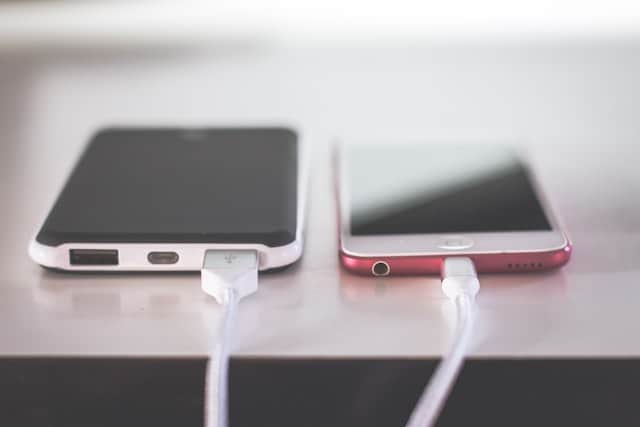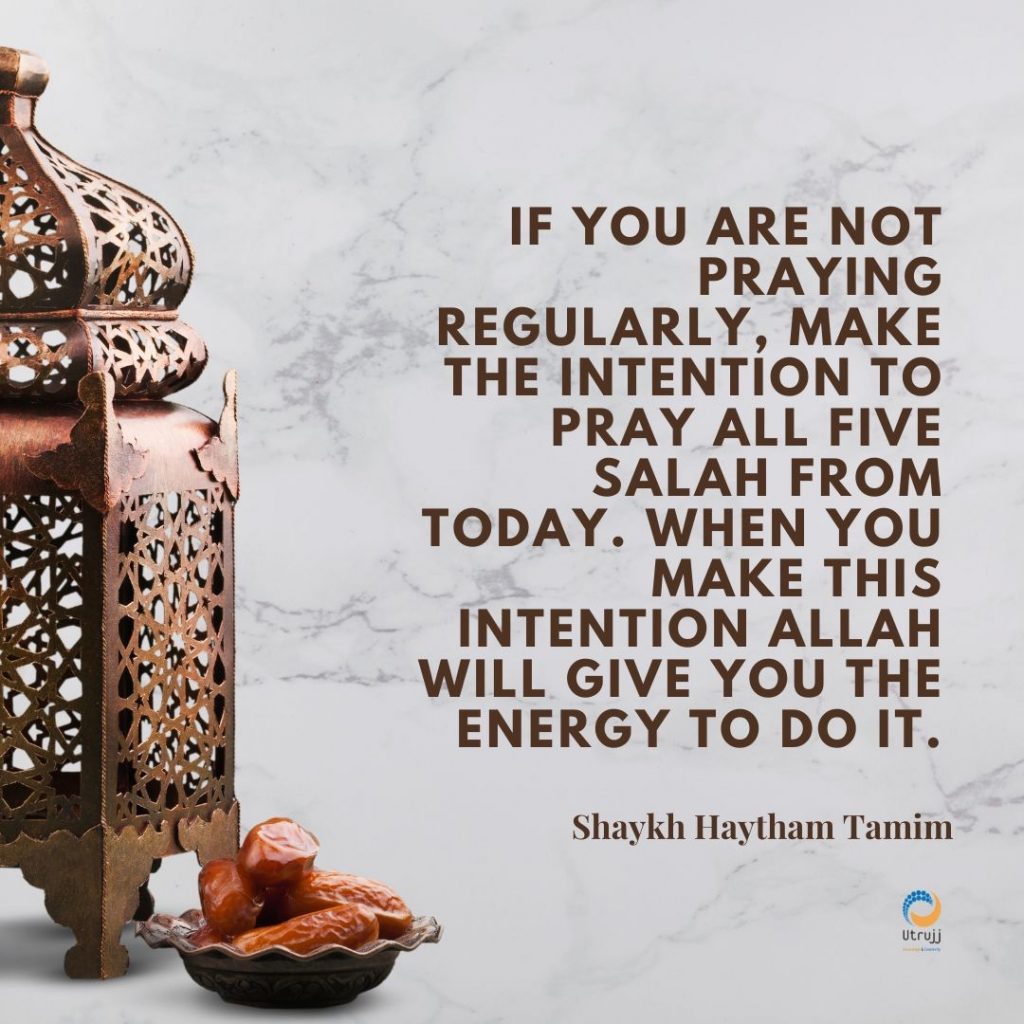Salah is your imaan-charger

The boycott of the Muslims
We all know the story of when the Muslims were under siege for three years in Makkah. The Quraysh actually wanted to kill the Prophet Muhammad (peace be on him), but he was protected by his uncle, Abu Talib, so instead they drove all the Muslims out of the city, into a narrow valley in the outskirts. The Quraysh declared that no one was allowed to trade with them or engage with them at all, and they got so hungry that they used to eat the leaves off the trees.
This lasted for three years, and in that time the Prophet (peace be on him) lost his beloved wife, Khadija, and his uncle, and this is what we call the Year of Sadness. It was in that atmosphere that Allah delivered him from this calamity to Isra wal Mi’raj, the Night Journey. And the commentators say that Surat an-Najm is addressing this event.
Isra wal Mi’raj
We have a different surah, Surat-al Isra, which deals with isra – the first part of the journey, between Makkah and Jerusalem.
‘Glory be to Him who took His servant on a night journey’ [17:1]
The mi’raj, the ascension to Jannah, is not mentioned explicitly anywhere in the Quran, but it is hinted at in this surah.
‘He saw the greatest signs of His Lord.’ [53:18]
This ayah is considered to have been during the ascension. A lot of things happened during that journey, but you can watch the sessions we have done on it, or read the blogs.
Although the Prophet (peace be on him) was in a very deep sadness, Allah gave him consolation and a boost to him and to his followers. We know that after his 13 years of da’wah in Makkah, he only had around 100 followers, out of around three to four thousand residents of Makkah, though there were no national statistics at the time, so we don’t know the exact number! But those hundred followers would carry the burden of the message and be leaders of the future.
Have sabr and do tasbih
Allah tells the Prophet (peace be on him) ‘wasbir‘. We see this everywhere in the Quran – in midst of calamities and tests, we need to practice sabr. Sabr is always followed up by wa sabbih in the Quran – i.e. ‘and do tasbih’.
We need both sabr and tasbih. Sabr is internal, while tasbih is your connection to Allah. Some people need extra external power to strengthen their sabr. This you get from Allah, because our power is limited. When your battery is dead, you charge it. You just need to plug it in, then get this energy back. Tasbih is like your charger.
Salah is a gift
Scholars have commented and said that tasbih is a metaphor for salah, since salah already includes lots of tasbih during the ruku and sujood. You may ask, when was the obligation of salah revealed? Exactly on that very night of Isra wal Mi’raj. Salah is the only obligation he received in the Heavens, not on Earth, and the only obligation he received without Jibreel as an intermediary. This is a big lesson. It indicates that your connection with Allah is direct – there is no third party. When you travel, you bring back gifts – and this is what Rasul Allah (peace be on him) did, bringing back salah as a gift to the Ummah, to deepen our connection with Allah and keep us on the straight path.
Salah energises us, rejuvenates us, empowers us to face the tests we go through every day. This is why we have five prayers, not just one: because we face continuous tests all day, from waking up until we go to sleep, every day until we meet Allah. We need to strengthen our salah and make it in accordance with the Sunnah. And we have an opportunity in Ramadan. Some people might not be praying regularly, but in Ramadan they keep their salah. So don’t lose this after Ramadan. We ask Allah to strengthen imaan, and make salah our mi’raj to Him during every salah. Ameen.
Shaykh Haytham Tamim – Ramadan Night 21
Transcribed by Hana Khan

Isra-wal-Miraj-Utrujj-Presentation-min-1Download
Isra wal Mi’raj – All you wanted to know (part 1: al Isra) – Utrujj
Isra’ wal Mi’raj – All you wanted to know (part 2)
Isra wal Miraj – All you wanted to know (part 3: scenes from jahanum)
The first thing you will be asked about is your Salah – Utrujj
Can you combine salah? – Utrujj
When can I shorten and combine salah while travelling?
Do you have to make up missed salah?
How to Fix Your Salah – the benefits of salah
Settle your account before it is too late
How to turn an ordinary fast, into a super fast
What is the connection between closeness to Allah, excellence and fasting?
- The truth is more powerful than lies
- Does a bride’s wali have to be Muslim?
- Is is permissible to lead a salah split over different rooms?
- Global IT outage. When systems go down…
- The concept of worship. What are ibadah and ihsan – and how do they lead to self development?

Recommended Posts

The truth is more powerful than lies
July 26, 2024

Global IT outage. When systems go down…
July 19, 2024

